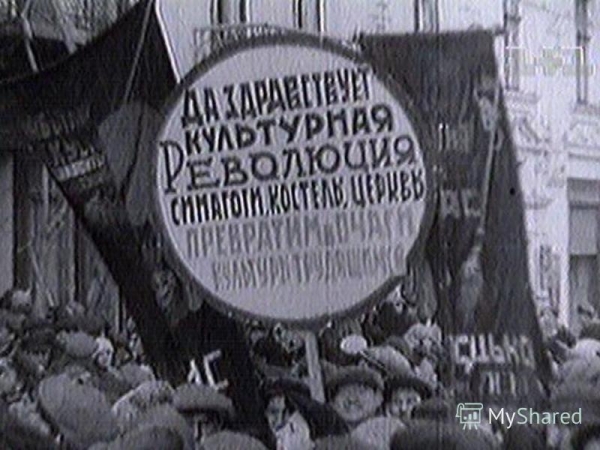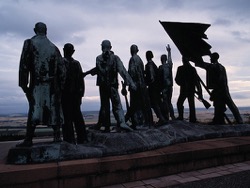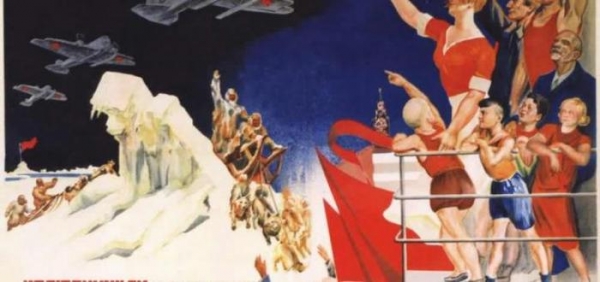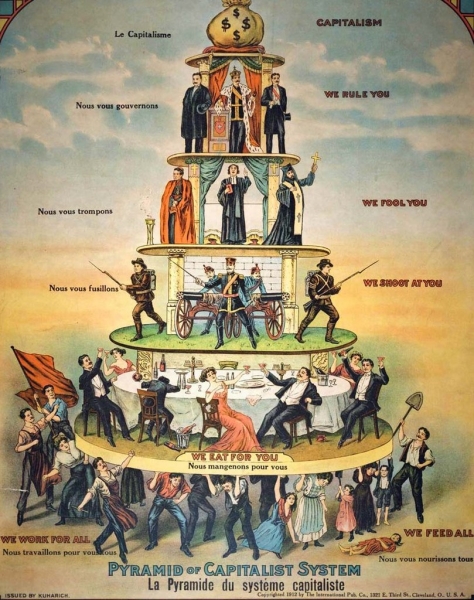
As you know, the term “cultural revolution” was coined by Lenin. Later, under Stalin, the problem of building socialism has been reduced to solving three main tasks: industrialization, collectivization and cultural revolution. Until the early 90-ies in the scientific literature, actively developed the theme of cultural construction in such aspects as goals and objectives, timelines, outcomes of the cultural revolution. And although Lenin had used this concept in the context of cooperation of producers, the goal of the cultural revolution were interpreted by historians is much broader — as the formation of a new, educated and conscious, the commitment to socialism of the individual. The starting point and the condition of the cultural revolution considered a social revolution, hence its initial phase — the October revolution of 1917, and the final — the construction of socialism.
For a long time among historians of culture were extensive discussions about what ended the Soviet cultural revolution with the construction of the “foundations of socialism”, and the more — “developed socialism”. Broad interpretation of the goals of the cultural revolution, the upbringing of the new man gave me one to say “no”. Others saw her purpose in the eradication of illiteracy, the introduction of universal primary seven and then secondary education, some progress in science, literature, art, the growth of the intelligentsia, answered this question in the affirmative. Because currently it is obvious that socialism in the USSR took place, in what sense we can talk about the cultural revolution? In addition, the term “revolution” with a stretch to apply to the cultural process. In the revolutions of the demolition of the old and the new. The culture can not develop without relying on previous achievements, not absorbing the cultural heritage of the past in engineering, science or in art. Thus, entrenched cliché of “cultural construction”, “the formation of socialist culture”, etc. meant artificially directed and controlled process, while culture is not built, and are born and developed. Therefore, the term “cultural revolution” should probably be viewed as a politicized and ideological slogan, as the prominence in culture in a comprehensive ideological imperative. Moreover, we must bear in mind that there is no single, homogeneous human culture. The culture of any society is a symbiosis of different, sometimes very different from each other subcultures that coexist, interact, which is a prerequisite of cultural progress. None of the subcultures can claim a dominant, dominant role, as it can lead to cultural degradation of society. During the “cultural revolution” in the Stalinist interpretation in literature and art was planted “only productive” method of “socialist realism”, in the social Sciences — “the only true dialectical method” in a very simplified interpretation, etc. nevertheless, it cannot be denied that over the years the construction of “state socialism” in the Soviet Union had achieved certain success in the development of culture. Dramatically increased the number of literate people. Since the 1930/31 school year throughout universal compulsory elementary education of children. The rapidly developing system of secondary special and higher education. Significant progress has been achieved in natural and technical Sciences, in literature and art. The success of cultural development objectively have been linked with another attempt of socio-economic modernization of Russian society, which has necessitated a corresponding growth of an educated population. But this policy was deformed its objectives (achievement of industrial, economic and military parity and then superiority over the most developed countries of the West for the victory of the world revolution, the widespread planting of the socialist system), as well as methods of using the totalitarian regime, the monopoly of one party on power and domination in the spiritual life of the society of the Communist ideology.
The oppressive atmosphere of a totalitarian state that is incompatible with the freedom of creativity, hindered the development of culture. Promising research areas — genetics, Cybernetics, Pedology — had suffered persecution, flourished pseudoscientists type of T. D. Lysenko. Was arrested many prominent scientists, writers, actors, Directors, musicians, artists. In spite of Lenin’s statements about the necessity of careful attitude to the heritage of the past and continuity in the development of culture, pre-revolutionary intelligentsia (military, technical, scientific, artistic, etc.) were either expelled, or arrested. The same fate befell the Russian Orthodox Church and its Ministers. Thus, we can conclude that, first, the so-called “cultural revolution” was a political slogan and served the ideological goals of the party-state elite of the world’s first state of victorious socialism, and secondly, it provided in the specified bounds is undeniable rise in the cultural level of workers and the development of education and science.








